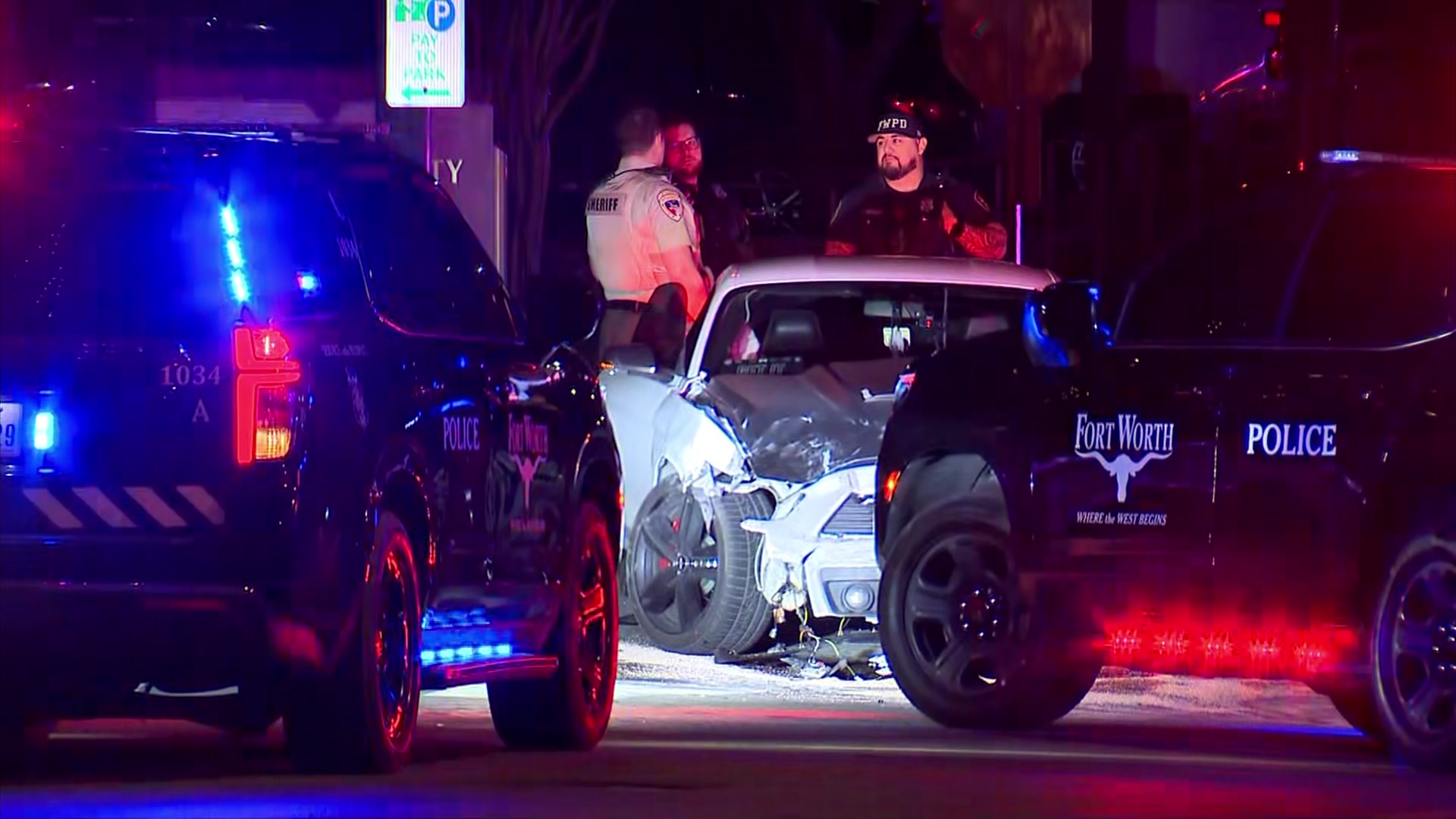October is Breast Cancer Awareness Month.
While fundraisers for research and support for patients and survivors are taking place throughout the month, the founder of the Susan G. Komen for the Cure, is on a new mission this year to break down barriers to treatment to help the underserved.
Nancy Brinker founded the organization in Dallas nearly 40 years ago. She named it after her sister, who died of breast cancer in 1980. Susan was just 36 years old.
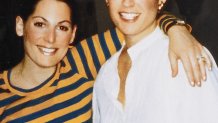
Get top local stories in DFW delivered to you every morning. >Sign up for NBC DFW's News Headlines newsletter.
“She asked me to cure breast cancer right before she died,” she said. “In those days, we didn’t have any or very few of the options that we do today in terms of treatment. Except that people knew it was going to be a deadly disease.”
Breast cancer has the highest mortality rate of any cancer in women between the ages of 20 and 59.
Brinker herself was diagnosed with breast cancer three years after her sister’s death.
Local
The latest news from around North Texas.
While the foundation has made strides in education, research and support for cancer patients in the 40 years since, Brinker said there’s more work to be done.
“I have a couple of great heroes — some of whom I’ve never met,” she said. “One was Marie Curie, the mother of radiation therapy as we know it today,” Brinker said. “She used to say, ‘I never see what has been done. I only see what remains to be done.”
Brinker also thinks back on the 50 years that have gone by since President Richard Nixon declared a war on cancer in 1971.
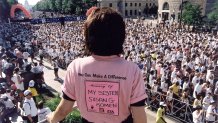
“The progress, while it has been considerable, it still makes me very sad that millions and millions of women in America still have no access nor can they afford cancer care, cancer diagnosis, and treatment,” she said.
Now in 2021, Brinker said she's worried about the ongoing pandemic impacting future breast cancer cases. She believes we will soon see a wave of stage 3 and 4 diagnoses because of how many people have skipped screenings during the pandemic. Data from the CDC shows an 87% decline in breast cancer screenings compared to past years.
“It is frightening. What this means is that we will have a lot of delayed diagnosis of breast cancer – which at that point could be very serious, particularly in the patient group that we're dealing with, those who are severely under-resourced,” she said.
Brinker said she’s noticed the jarring number of women who have no access to care, screenings, or even a regular doctor.
That's why she's shifting her focus from the foundation to a new nonprofit she's created, called The Promise Fund. It's a boots-on-the-ground effort aimed at breaking down the barriers to important healthcare, cancer prevention, and screenings for uninsured women.
It's estimated there are upwards of 11 million women in the United States who do not have insurance or lack the resources for cancer support.
So far, The Promise Fund has built its own screening center in Florida alongside a federally qualified health care center. It is staffed with volunteers, doctors and navigators who are there to help women in need to access vital testing, treatment and guidance through their cancer diagnosis.
“Everything that happens and every medical intervention doesn’t have to be so expensive that people just can’t afford it,” she said. “It needs to be affordable, it needs to be accessible and it needs systemic change. Not just grant-giving but actually building the grants, building the work and then the follow-up.”
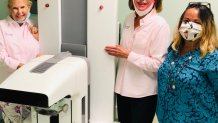
In just the last several months, Brinker said they have screened, treated and educated over 10,000 women. There are tens of thousands more underserved women left to help in the country they are operating in so far in South Florida.
“We are going full steam until we get through all of them. Because there is a case to be proven here about the costs that we meet treating people in late-stage disease, which is not a necessity. We know that now. That is what we are focusing our time on and I believe it’s well spent,” said Brinker.
Brinker says the goal is to replicate the model they've created and help expand it, which could potentially bring these accessible cancer centers to more places across the country like Texas.
“We have a formula now that works,” she said. “It is definitely a model that is replicable. We are reaching a point probably within the next six months where people can do this in any county, any town – using resources we have in the United States presently and adding some to it. We are hoping that we get some appropriation from the Biden outreach. So far we have not but we do believe we will because it works.”
Texas has commonly ranked among last in policies affecting women's health and last in health insurance for women ages 18 to 44.
“Sadly Texas and Florida generally because of population, are two of the states leading in not being able to have the kind of impact on breast cancer outcomes as they should be,” Brinker said.
Research also shows Hispanic women are more often diagnosed with late-stage breast cancer. Black women have the highest mortality rate of any racial or ethnic group in the U.S.
This month, people are being asked to wear pink boots as part of their Pink Boots on the Ground campaign, which officially launches next month.
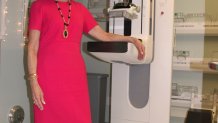
Local Events for Breast Cancer Awareness Month
North Texas communities are coming together to support fighters, survivors and those who have been lost to the disease.
NorthPark Center will welcome back the first large, in-person Susan G. Komen Dallas event for the first time locally since the pandemic began. Many events were canceled or taken virtually last year.
This year, they are bringing in some new energy by hosting a traditional walk instead of a timed 5K.
The organization actually changed the name from "Race for the Cure" to the "More Than Pink Walk". The goal is to allow folks to take time to connect with each other more through educational and interactive activities set up throughout the walking path.
The walk refers to the idea that Komen is so much more than a color. Pink is powerful, the organization said.
According to Susan G. Komen, supporters have helped raise more than $2 billion to help fund research, education, screening and treatment to date. Fifty-six percent of Komen’s research funding goes toward more effective treatments for those living with metastatic breast cancer. In the last 12 years, the organization said it has invested an average of 80 cents or more of every dollar raised to mission programs, such as research, local access to care and screening services, financial assistance, and support programs.
The More Than Pink Walk is Saturday, Oct. 23 at 8 a.m. at NorthPark Center in Dallas. Events ramp up before that, so plan to get there early. Here's more on how to register.
There's also a virtual walk being held that day, where people can experience the finish line, opening ceremony and other events from home -- similar to the event in Fort Worth this past weekend. Access the Facebook group or the Zoom link for more details. People who choose to participate privately can walk anywhere and are encouraged to use #WalkWhereYouAre on social media.
T-shirts will be provided to all registered breast cancer survivors or those living with metastatic breast cancer, and to Community of Hope members. Here is information for pick-up times and locations.
On Oct. 17, Susan G. Komen is also hosting a special event for survivors at Texas Motor Speedway. The Promise Parade will give them a chance to drive in their own vehicle around the race track. Here's how to sign up online.
NASCAR will then host its breast cancer awareness race later that afternoon. They will have a special pink section along with 25% of the proceeds of each ticket going to Susan G. Komen to help fund research and save lives.
A church in South Dallas is also working to get the community screened this Saturday.
The Salem Institutional Baptist Church is partnering with Parkland Hospital to provide free mobile mammograms. It runs from 8 a.m. until 1 p.m. on Oct. 9 and is open to all Dallas County residents ages 35 and over.
To schedule an appointment, call the church at 214-428-3797.
You might also want to check where you shop, as local businesses are contributing sales to breast cancer research.
Dallas-based Kendra Scott has launched the 'Shop for Good' BCA jewelry collection through the month of October to benefit critical research and advancements for the Breast Cancer Research Foundation.
The company has made raising funds for research year-round cause. Founder Kendra lost her friend Holley Rothell Kitchen to metastatic breast cancer in 2016. To date, Kendra Scott has donated $847,774 to BCRF, of which Kendra Scott customers have helped raise over $500,000.


